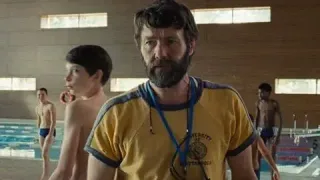August 16, 2022
Review: Recent Recordings of Symphonies 2 and 4 Achieve a Mahler Makeover
Timothy Pfaff READ TIME: 5 MIN.
From September 29 through October 2, Esa-Pekka Salonen will lead the San Francisco Symphony in performances of Gustav Mahler's Second Symphony, the "Resurrection," that are sure to be as safe a ticket as the fall season has to offer. Since it's Salonen, the only thing that can be predicted is that the music-making won't be routine.
Meanwhile, the wild world of recordings serves up two new off-the-beaten-path readings of Mahler symphonies –Gabriel Feltz's of the Second, Francois-Xavier Roth's of the Fourth– guaranteed to shake loose the last cobwebs clinging to what are now the standard interpretations.
Predictably enough, most of us cut our ear-teeth, greedily and with gusto, on the Mahler of our time, very roughly from First Bernstein to Last Boulez, which rightly imprinted themselves strongly on what we used to think of as our imaginations.
These new recordings come as startling reminders that Mahler wasn't always played that way –as sleek, homogenized sound-spectaculars, let's say to beef up the argument– and that if the trends represented by Feltz and Roth continue (and long may they wave), we may come to think of our most treasured Mahler recordings as old-fashioned.
You Say What?
If your Mahler mania has led you to investigate recordings from closer to Mahler's lifetime – again, say, Bruno Walter, though he's really closer to us – it's a different, one could even say whole new, world. Without even broaching matters such as instrumental sounds (gut strings) and playing styles (portamento galore), what you encounter in these vintage recordings is a life-giving freedom with the scores, to which our "modern" interpreters have become curiously hide-bound.
What's drawn most of us to Mahler is the depth of feeling in his music. What we find pre-Lenny is something closer to sheer abandonment to its emotional universe – not at all unlike the stunning "new" pictures we're now getting of the "old" cosmos.
What we get in Feltz's "Resurrection" is a melding of old and new that should go a long way toward making these "Mahler Unleashed" performances, so redolent of those from the early 20th century, more approachable, even desirable. Feltz works with an orchestra of modern instruments recorded with today's highest professional standards. The results are frequently hair-raising.
Tempos tend to the extreme ("felt rhythms"), phrasing overall more spontaneous ("vocal"), and climaxes skewed as much to their disintegration as to their howling peaks. Here conducting the Stuttgart Philharmonic, Feltz – while in supreme control of the proceedings – lets slip the reins on this most exalted of warhorses.
It's so far away from, say, Gilbert Kaplan's curated, wannabe "definitive" Second, that significant stretches of the music may sound jarring to our Abbado-attuned ears (mine!). Whatever you think about the "authenticity" of such an interpretation, there's no denying its – on its own terms – truth. And if the no-holds-barred, heaven-bent-for-leather choral finale, with its gasping pauses between passages of unalloyed joy, doesn't raise goose-flesh, check your pulse.
It warrants saying here that Feltz's Second is part of a full cycle with the Stuttgart orchestra and the Dortmund Philharmonic. The cycle is available on ten CDs from Dreyer Gaido – but, importantly, all the symphonies can be sampled individually on all major streaming platforms.
Historically Informed Performance
Usually but not always with his period-instrument band, Les Siecles, Francois-Xavier Roth has fostered the delectable habit of making everything he conducts sound new without resorting to sensational exaggeration.
His recording of Mahler's First a few years back finally fulfilled the promise of predecessors such Nikolaus Harnonecourt and Roger Norrington (the second of whose recordings, once ubiquitous, have attained the rarity of collectors' items), who, often in the face of ridicule early on, began the lonely trek with "original instruments" up Mount Mahler.
Roth's new Fourth (Harmonia Mundi) is so astounding it indisputably counts as a revolution in Mahler playing. The historically appropriate instruments have their expected tang and bite, but it's the stylistic fidelity – combined, critically, with Roth's acute aural imagination – that make this Fourth hop out of the speakers. It's the symphony we know and love lent a logic more likely its own and, in defiance of scholarly restraint, given its exuberant head.
Many, even most, recordings of the Fourth have fluffed with their readings of the last movement, a vehicle for solo soprano that has often had a hard time deciding if the proper sonority is angelic or instrumental.
For Roth, the French soprano Sabine Devieilhe captures its essential purity simultaneously with its too-often-overlooked insouciance. The passages you always thought might reflect yodeling here sound like yodeling, albeit of a sophisticated sort. As is her wont now, Devieilhe also manages to be heart-breaking while also the most observant of musicians.
Big Ben Strikes Again
The Fourth was the only Mahler symphony Benjamin Britten conducted, and his recording is eminently worth seeking out. A wholly remarkable amount of Britten's music has established itself in today's active repertoire, though the song cycles he wrote for his longtime partner Peter Pears still require the advocacy of tenors such as Nicholas Phan. (Well, not tenors like him, but actually Nicholas Phan.)
For reasons having to do with music forces, the particularly endangered subspecies of Britten-for-Pears works are the orchestral song cycles.
Once again, it's a recording to the rescue. A new disc with tenor Andrew Staples and the Swedish Radio Symphony under Daniel Harding, another conductor who seemingly can do no wrong these days (Harmonia Mundi), flourishes.
"Les Illuminations," featuring ten settings of poems by Arthur Rimbaud (Devieilhe's native French was a major asset in a recent concert performance), has a diamantine brilliance underwritten by pulsating rhythms. Staples is more successful with it than any other tenor since Pears, but the real wonders come from Harding and the orchestra, who perform at white heat.
Horn soloist Christopher Parkes is a full musical partner in the "Serenade" for tenor, horn, and strings, settings of poems by eight poets, and the otherworldly "Nocturne," which sets salient texts by eight British poets. Renditions by committed musicians such as these could secure an audience demand that they be performed more often.
"Gustav Mahler, The Complete Symphonies," Stuttgart and Dortmund Philharmoniker, Gabriel Feltz, conductor, 10 Dreyer Gaido CDs and digitally on most streaming platforms.
'Mahler, Symphony No. 4, Les Siecles,' Francois-Xavier Roth, conductor, Harmonia Mundi.
'Benjamin Britten, Les Illuminations, Serenade, and Nocturne for tenor and orchestra,' Andrew Staples tenor, Christopher Parkes, horn, Swedish Radio Symphony Orchestra, Daniel Harding, conductor, Harmonia Mundi.
Help keep the Bay Area Reporter going in these tough times. To support local, independent, LGBTQ journalism, consider becoming a BAR member.






